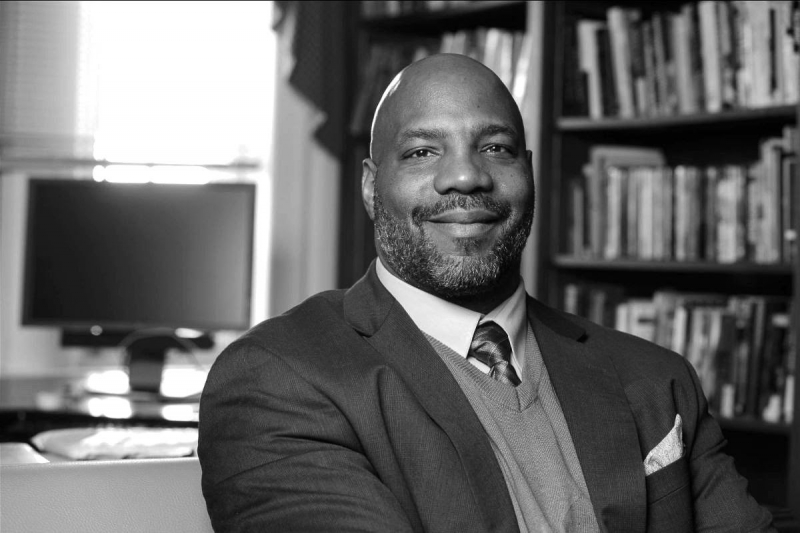Sept. 29 – Oct. 1, 2021 | Virtual Conference
2021 AIA/ACSA Intersections Research Conference: COMMUNITIES
Fall Conference
COMMUNITIES
Call for Abstracts
Co-Chairs
Sponsors
Rico Quirindongo, City of Seattle, Office of Planning and Community Development
Georgeen Theodore, New Jersey Institute of Technology

The American Institute of Architects (AIA) and the Association of Collegiate Schools of Architecture (ACSA) are pleased to announce the second annual joint AIA/ACSA INTERSECTIONS Research Conference dedicated to the INTERSECTION of Education, Research and Practice. This 2.5-day virtual conference will include dynamic presentations of current research and keynotes and sessions offering new ideas, models for practice, and challenging our profession in addressing the critical issue of climate and community. The conference builds on the eight-year partnership between AIA and ACSA toward these objectives. The focus of the INTERSECTIONS programs is intended to strengthen the INTERSECTION between academia and design practice, especially when it comes to research and innovation, focused on community strategies.
Attendees will hear about new discoveries and innovations at all scales and gain an increased awareness of research happening in both academia and practice, which will inform their work and teaching. The conference will foster opportunities for new partnerships, explore interdisciplinary opportunities, find sources of funding and collaborations. It will be a chance for both established researchers as well as those looking to enhance their research capabilities, or update their knowledge, with keynotes, sessions, breakouts, workshops and networking events.
Overview
Call for Abstracts
As we find ourselves a year (+) into a world pandemic, what has changed? What issues and silver linings have emerged to change how we learn, work, live and play? What can we as architects, academics, researchers & design leaders do to improve our world, environment, our cities, our buildings & our communities? How can we take a cue from the call for social justice which has been elevated during a time of COVID to address our communities of need, our communities of color, and a legacy of redlining and environmental racism? How can we use and share this knowledge to impact the critical issue of Climate change?
Architects are called on to see the bigger picture beyond singular buildings, to ensure the buildings and developments they design have a long-lasting beneficial impact on our cities, regions, towns, and environment. The shifting economic, political, and climatic landscape has left many communities and neighborhoods challenged and changed. How do architects process these varied and interdependent impacts and revise their approaches to building and urban/rural design? Successful community projects can rally communities to improve, rebuild, and restore their cities and towns. How can design affect social change? What role can architects and designers play in addressing community needs; such as:
- affordable housing demand
- public space, open space, community investment
- institutional buildings (health, education, government, etc.)
- projects that spur local economic development and the associated impacts,
- buildings and urban interventions that mitigate exposure to adverse conditions (pollution, heat, noise, flooding, etc.)
Where can research fill gaps in applied design work and spur innovation? How can architects enrich academic and community endeavors? And how can academia and practice collaborate to build stronger, more resilient and equitable communities?
At this conference, we look to share the latest research and innovations, and examine the role research plays in advancing architectural practice and education within our communities. Speakers and presenters will share how their research is generated in practice, at universities and in partnerships with business, industry, and government.
Keynote Speakers

Opening Plenary
Jelani Cobb
Jelani Cobb, Columbia University’s Ira A. Lipman Professor of Journalism and a long-time staff writer at The New Yorker. The conference will examine the legacy of our built environment and its communal implications. Cobb’s writings on race, history, justice, and politics earned him the 2015 Hillman Prize for opinion and analysis journalism. He is the author of Substance of Hope: Barack Obama and the Paradox of Progress, To the Break of Dawn: A Freestyle on the Hip Hop Aesthetic, and The Devil & Dave Chappelle and Other Essays.
Questions
Melanie De Cola
AIA, Manager, Architectural Research
202-626-7574
melaniedecola@aia.org
Eric Wayne Ellis
ACSA, Senior Director of Operations and Programs
202-785-2324
eellis@acsa-arch.org

 Study Architecture
Study Architecture  ProPEL
ProPEL 
